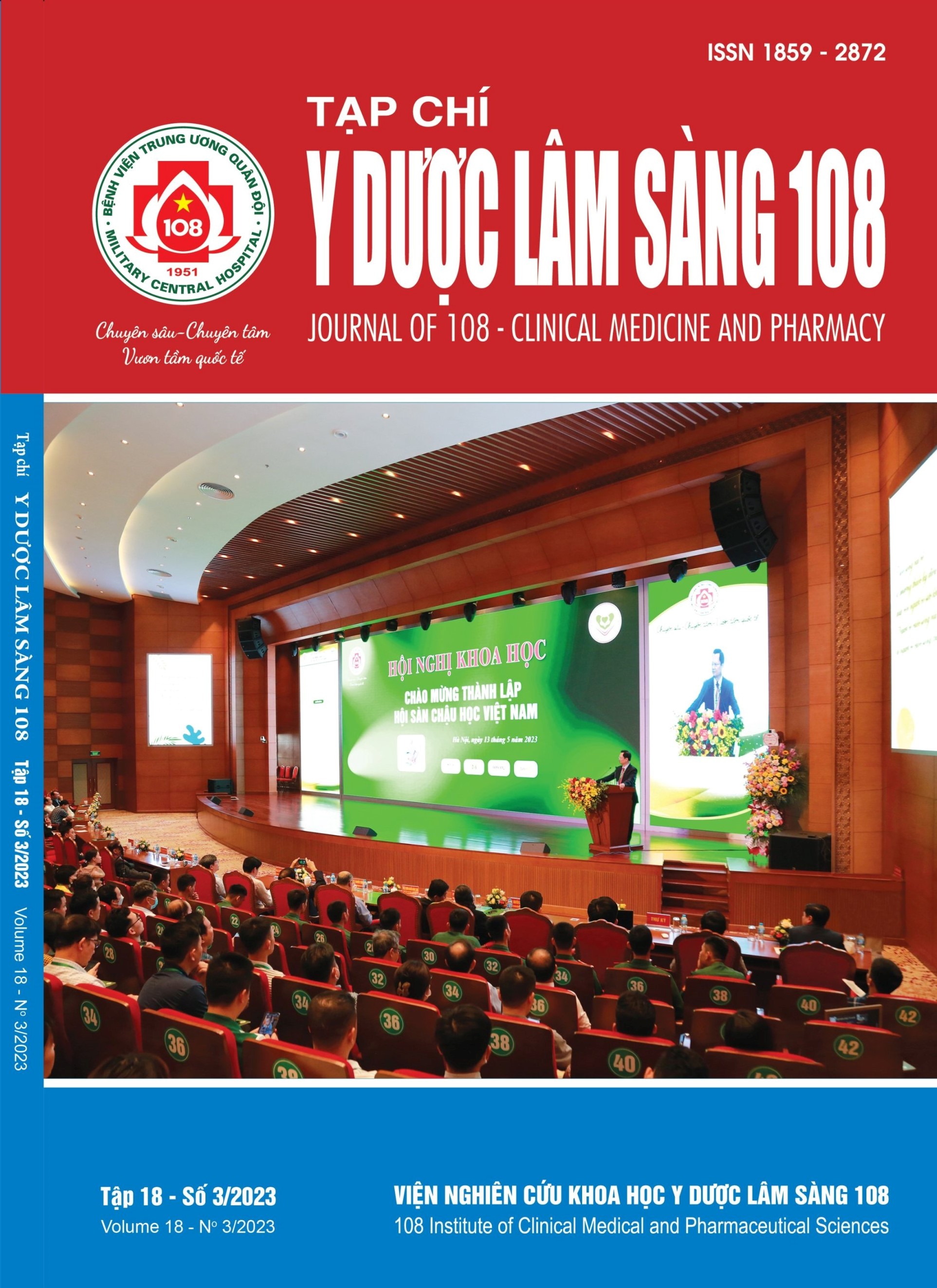Serum total immunoglobuline E level in patients with chronic urticaria
Main Article Content
Keywords
Abstract
Objective: Our research aimed to determine the level of serum total IgE and its association with the epidemiological and clinical features in chronic urticaria patients at HCMC Hospital of Dermato-Venereology. Subject and method: 61 patients and 34 healthy controls matched for age and sex were included in the study. Result: Serum total IgE levels of patients with chronic urticaria were statistically significantly higher than those of the healthy group (p<0.001). Patients who had good response to antihistamine treatment showed higher total IgE levels as compared with those who had treatment resistance (p=0.034). Conclusion: Low serum IgE levels may associated with poor response to treatment with antihistamine medicines in patients with chronic urticaria.
Article Details
References
2. Kessel A, Helou W, Bamberger E, Sabo E, Nusem D, Panassof J et al (2010) Elevated serum total IgE - a potential marker for severe chronic urticaria. International Archives of Allergy and Immunology 153(3): 288-293.
3. Weller K, Ohanyan T, Hawro T, Ellrich A, Sussman G, Koplowitz J et al (2018) Total Ige levels are linked to the response of chronic spontaneous urticaria patients to omalizumab. Allergy 73(12): 2406-2408.
4. Kolkhir P, Pogorelov D, Olisova O (2017) CRP, D-Dimer, Fibrinogen and Esr as Predictive Markers of Response to Standard Doses of Levocetirizine in Patients with Chronic Spontaneous Urticaria. European annals of allergy and clinical immunology 49(4): 189-192.
5. Schoepke N, Asero R, Ellrich A, Ferrer M, Gimenez‐Arnau A, EH Grattan C et al (2019). Biomarkers and clinical characteristics of autoimmune chronic spontaneous Urticaria: Results of the purist study. Allergy 74(12): 2427-2436.
6. Zuberbier T, Aberer W, Asero R, Abdul Latiff AH, Baker D, Ballmer-Weber B et al (2018) The Eaaci/Ga²len/Edf/Wao guideline for the definition, classification, diagnosis and management of urticaria. Allergy: European Journal of Allergy and Clinical Immunology 73 (7): 1393-1414.
7. Kolkhir P, Kovalkova E, Chernov A, Danilycheva I, Krause K, Sauer M et al (2021) Autoimmune Chronic Spontaneous Urticaria Detection with Igg Anti-Tpo and Total Ige. The Journal of Allergy and Clinical Immunology: In Practice: 4138-4146.
8. Lima H, Gooderham M, Dutz J, Lynde C, Chapdelaine H, Ellis A et al (2017) Management of chronic spontaneous urticaria (Csu): A treat to target approach using a patient reported outcome. Allergy, Asthma & Clinical Immunology13(1): 1-7.
9. Chang KL, Yang YH, Yu HH, Lee JH, Wang LC, Chiang BL (2013) Analysis of Serum Total Ige, Specific Ige and Eosinophils in Children with Acute and Chronic Urticaria. Journal of Microbiology, Immunology and Infection 46(1): 53-58.
10. Kolkhir P, Church MK, Altrichter S, Skov PS, Hawro T, Frischbutter S et al (2019) Eosinopenia, in Chronic Spontaneous Urticaria, Is associated with high disease activity, autoimmunity, and poor response to treatment. Journal of Allergy and Clinical Immunology: In Practice 8(1): 318-325..
11. Montjoye L, Darrigade AS, Giménez-Arnau A, Herman A, Dumoutier L, Baeck M (2020) Correlations between Disease Activity, Autoimmunity and Biological Parameters in Patients with Chronic Spontaneous Urticaria. Eur Ann Allergy Clin Immunol 53(2): 55-66.
12. Magen E, Schlesinger M, David M, Ben-Zion I, Vardy D (2014) Selective IgE deficiency, immune dysregulation, and autoimmunity. Allergy Asthma Proc 35: 27-33.
 ISSN: 1859 - 2872
ISSN: 1859 - 2872
